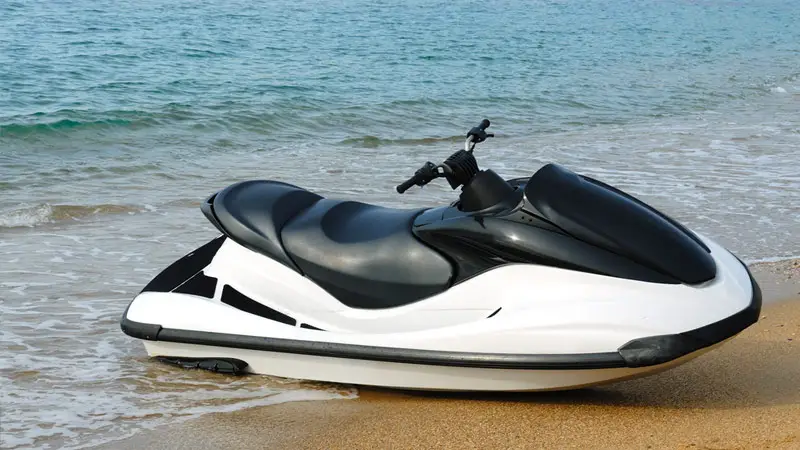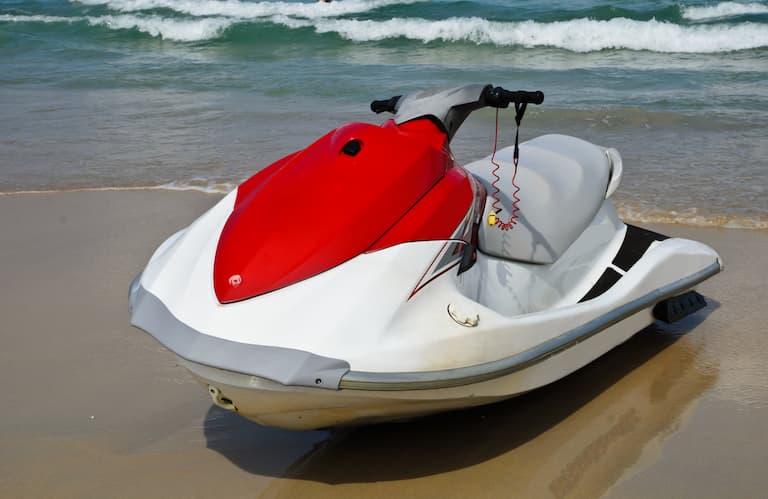Jet Skis: Are They a Waste of Money? Examining the Pros and Cons of Owning Personal Watercraft
In recreational activities, jet skis or personal watercraft (PWC) often symbolize exhilaration and freedom, gliding through the waves with the salty breeze in your hair. They are a staple for many water enthusiasts, offering a thrilling ride that’s hard to match.
However, investing in one often raises the question, “Are jet skis a waste of money?” Although subjective, this critical question requires a comprehensive understanding of the pros and cons of owning these watercraft.
Whether jet skis are a waste of money depends on personal use and values. For water sport enthusiasts who frequently use them, they’re a worthy investment. But for infrequent users, the purchase, maintenance, storage, and insurance costs may outweigh the benefits.
The allure of jet skis is undeniable; the thrill, the speed, and the ability to connect with nature are just a few aspects that make them irresistible to many. Yet, they come with challenges – from the initial purchase price and maintenance costs to environmental considerations.
In this article, I’ll aim to present an unbiased examination of the benefits and drawbacks of owning a jet ski, providing potential buyers with a detailed guide to navigate the turbulent waters of this significant financial decision.
Will the scales tip favor the adrenaline-fueled fun, or will the pragmatic realities prove too weighty? Let’s delve in to find out.
The Financial Perspective of Owning a Jet Ski: Initial Investment and Ongoing Costs

Investing in a jet ski is no small affair. The initial purchase price of a new personal watercraft can range widely, from a few thousand dollars for a basic model to well over $10,000 or more for high-end, performance-oriented models. This cost is further influenced by brand reputation, model, engine size, and additional features.
Used jet skis can be more affordable, but their condition and history should be thoroughly evaluated to avoid unexpected repair costs. Furthermore, the initial investment is not confined to the jet ski alone, as essential gear like life jackets, tow ropes, and covers, and optional accessories like trailers, will add to the upfront cost.
Beyond the initial investment, owning a jet ski involves ongoing costs that can add up over time. Regular maintenance, including engine check-ups, oil changes, and winterization, is crucial to ensure the longevity of the watercraft and can incur significant annual expenses. Fuel is another considerable ongoing cost, with high-performance models consuming more.
Additionally, there are storage costs to consider. If you don’t live near a body of water and don’t have suitable storage at home, you may need to pay for winter storage or marina slip fees. There are also registration and insurance costs, which vary based on the model, usage, and the owner’s driving record.
This financial perspective provides a clear-eyed view of the costs of owning a jet ski beyond the initial sticker price.
Maintenance and Storage: Hidden Costs of Jet Ski Ownership
While the excitement of owning a jet ski often centers around the thrilling ride, many potential owners overlook the less glamorous aspects of ownership: maintenance and storage. These hidden costs can significantly add to the overall expense and should be thoroughly considered before purchasing.
A jet ski, much like any vehicle, requires regular upkeep to stay in top-notch condition, and proper storage is essential to protect it from the elements and prolong its lifespan.
Hidden Costs of Jet Ski Ownership:
- Routine Maintenance: This includes engine check-ups, oil changes, and replacing parts as necessary. Regularly maintaining your jet ski can lead to expensive repairs in the long run.
- Winterization: If you live in a region with cold winters, you must winterize your jet ski. This process involves draining water from the engine, adding a fuel stabilizer, and applying anti-corrosion spray, which can incur additional costs.
- Storage: Depending on your location and available space, you may need to pay for storage. This could be a marina slip fee during summer or a storage facility during winter.
- Transportation: If you don’t live near a body of water, you’ll need a trailer to transport your jet ski, which is an additional cost. Plus, there are the ongoing costs of fuel for your vehicle to tow the jet ski.
- Repairs: Even with diligent maintenance, jet skis may need occasional repairs, especially as they age. These costs can vary greatly depending on the severity of the issue.
- Depreciation: While not a direct out-of-pocket expense, it’s important to remember that jet skis, like cars, depreciate over time. Your investment will lose value, which should be factored into your financial considerations.
- Insurance: While often considered a regular cost, insurance can have hidden costs in higher premiums for certain models or owners with less experience or a poor driving record.
Jet Ski Insurance and Safety Considerations: Assessing the Risks

Insurance and safety considerations are two critical aspects of jet ski ownership that should not be overlooked. Ensuring your personal watercraft is insured provides financial protection in case of accidents or theft and is a legal requirement in many jurisdictions.
The insurance cost can vary widely based on factors such as the value of the jet ski, the owner’s experience, intended use, and the chosen level of coverage. Comprehensive policies covering damages, theft, and third-party liability can be more expensive but provide broader protection.
Beyond insurance, safety is a paramount concern when operating a jet ski. These machines, though small, can reach high speeds and pose significant risks if not handled properly. Accidents involving personal watercraft can result in serious injuries or even fatalities. Therefore, owners must be well-versed in safe operating practices.
This includes understanding local regulations, wearing appropriate safety gear (such as life jackets), maintaining a safe speed, and avoiding alcohol while riding. Safety training courses are recommended for novice riders and can sometimes result in reduced insurance premiums.
In essence, assessing the risks of jet ski ownership involves a careful balance between the thrill of the ride and the potential hazards. The cost of insurance and the commitment to safety are integral to this equation, and prospective owners should consider these elements thoroughly before taking the plunge.
The Joy of Riding: Unpacking the Recreational Benefits
Amid the financial and safety considerations, it’s crucial not to lose sight of the primary allure of jet skis: the sheer joy of riding. The recreational benefits of owning a personal watercraft are plentiful and extend beyond the rush of adrenaline that comes with skimming the water’s surface at high speeds.
Whether exploring new waterways, bonding with family and friends, or simply enjoying a sunny day out on the water, the recreational benefits of jet ski ownership are significant and offer a unique form of leisure that few other activities can match.
- Adrenaline Rush: Few things compare to the exhilaration of riding a jet ski, especially at high speeds. It’s a thrilling activity that can provide a much-needed escape from the mundane.
- Exploration: Jet skis offer an excellent opportunity to explore waterways, lakes, and coastal areas that might otherwise be inaccessible. It allows owners to discover new spots and appreciate the beauty of their surroundings.
- Fitness: While it might seem leisurely, jet skiing can be a great workout. It requires balance, strength, and endurance, contributing to overall physical fitness.
- Social Bonding: Whether riding with a friend on a two-seater or having fun with fellow jet ski owners, this activity promotes social interaction and bonding. It’s a fun and unique way to spend time with loved ones or meet new people.
- Connection with Nature: Being out on the water on a sunny day can be a serene experience. It allows riders to connect with nature, offering peace and tranquility, a perfect antidote to everyday stress.
- Versatility: Jet skis can be used for various activities, such as towing a wakeboarder or tuber, fishing, or even participating in races. Their versatility enhances their appeal and value as a recreational investment.
These recreational benefits underscore the charm and appeal of owning a jet ski, offering a unique perspective on whether they are a worthwhile investment.
Alternatives to PWC Ownership: Rental and Sharing Options

- Jet Ski Rentals: An ideal choice for those who want the thrill of riding a jet ski without the ownership responsibilities. Renting allows you to enjoy a jet ski for a day or even a few hours at a fraction of the cost of owning one. Plus, you can try different models each time.
- Jet Ski Tours: If you’re new to jet skiing or want a guided experience, consider joining a jet ski tour. These guided adventures allow you to explore new areas safely and often include the rental cost in the package.
- Jet Ski Clubs or Sharing Platforms: Some companies offer jet ski-sharing services similar to car-sharing platforms. Members can book a jet ski for a specific period without worrying about maintenance, storage, or insurance.
- Time-Shares or Co-Ownership: This involves splitting the cost of a jet ski with a friend or family member. Each owner gets to use the jet ski for an agreed period. This option reduces the financial burden but requires a good relationship and clear communication between co-owners.
- Leasing Options: Some dealers offer leasing options, where you can use a jet ski for a specified period and return it at the end of the lease. It’s a good option if you want a new jet ski every few years and don’t want to worry about reselling your old one.







